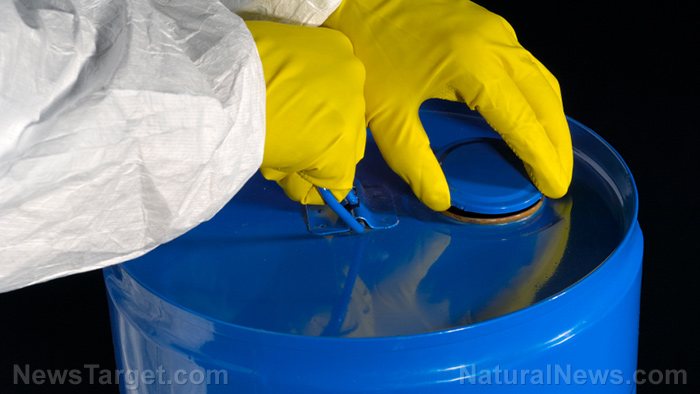 Parler
Parler Gab
Gab
- A comprehensive scientific review concludes that regular coffee consumption offers significant protection, transforming it from a simple stimulant into a functional beverage with proven health benefits.
- Regular coffee drinkers have a much lower risk of severe liver scarring (fibrosis and cirrhosis) and liver cancer, with the strongest effects seen in those who consume three or more cups per day.
- The benefits come from a synergy of compounds in coffee. It's not just caffeine; a combination of components, including chlorogenic acids and diterpenes, works together to reduce oxidative stress, improve fat and sugar metabolism and stimulate the body's detoxification processes.
- To get the most protective effects, experts recommend drinking it black, without sugar or high-fat creamers and using brewing methods like French press or cold brew that extract more beneficial compounds.
- It should be integrated into a healthy lifestyle that includes a balanced diet and exercise and is not a license for poor health habits. The evidence, while strong, is largely observational and calls for more rigorous trials.
Unpacking the power of the bean
So, what makes this daily ritual so potent? The answer lies in coffee's complex cocktail of bioactive compounds. It is not merely the caffeine, but a synergistic blend of components working in concert. Caffeine helps activate the body's own built-in antioxidant defense systems. Chlorogenic acids, a group of powerful plant-based polyphenols, support liver health by regulating how the body metabolizes sugar and fat, while simultaneously reducing oxidative stress – a key driver of cellular damage. Furthermore, natural oils called diterpenes have been shown to stimulate the body's natural detoxification processes, providing another layer of protection. "Plant-based polyphenols are beneficial because they protect cells from damage with their antioxidant properties," BrightU.AI's Enoch noted. "They are also crucial in slowing down tumor growth and hindering cancer development. Furthermore, they support overall health by improving brain function and reducing the signs of aging." The review also sheds light on a fascinating connection between coffee and gut health. Evidence suggests that coffee consumption promotes a healthier balance of gut bacteria, encouraging the growth of beneficial microbes like Bifidobacterium. This, in turn, reduces gut permeability and lowers the influx of toxins into the liver, thereby decreasing systemic inflammation. While this area of research remains largely observational, it provides a promising mechanistic explanation for coffee's broad anti-inflammatory effects and underscores the beverage's role in supporting overall systemic health. While the simple act of drinking coffee is beneficial, how you prepare it can influence its health potential. To maximize the protective effects, experts recommend starting with high-quality, organic Arabica beans and grinding them fresh to preserve their potent antioxidants. Consumers should also be mindful of potential contaminants because some coffee beans can be prone to mold. The brewing method matters, too – longer extraction methods, such as French press or cold brew, tend to pull higher levels of beneficial compounds from the grounds. Loading a cup with sugar, flavored syrups and high-fat creamers can counteract its inherent benefits. For the greatest therapeutic effect, the research points squarely to plain, black coffee.Not a cure-all, but a powerful tool
Medical and nutritional experts are quick to caution that coffee is not a magic bullet. It should not be viewed as a license to neglect other aspects of health. A balanced diet, regular physical activity and moderation in alcohol consumption remain the cornerstones of liver health and overall well-being. Coffee should be integrated into a healthy lifestyle as a supportive measure, not used to offset poor habits. For individuals with certain conditions, such as caffeine sensitivity or specific heart arrhythmias, moderation is especially critical. This landmark review solidifies a profound truth that resonates with both common sense and cutting-edge science: One of the world's most popular beverages is also a remarkably effective guardian of one of the body's most vital organs. By elucidating the precise molecular mechanisms through which coffee's components combat oxidative stress, inflammation and fibrosis, the research transforms a daily ritual into a deliberate act of preventative health. Watch and learn how organic coffee can benefit your health and garden. This video is from the Health Ranger Store channel on Brighteon.com. Sources include: MindBodyGreen.com ScienceDirect.com Prevention.com News-Medical.com BrightU.ai Brighteon.comThe great unplug: Reclaiming our minds from the digital onslaught
By Ava Grace // Share
Grapeseed oil: A nutritional powerhouse or overrated cooking oil?
By Laura Harris // Share
Dinosaurs were thriving before asteroid strike — new fossil evidence challenges extinction theories
By Kevin Hughes // Share
Your gut’s secret code: How everyday carbs reprogram your body’s defenses
By Ava Grace // Share
Macadamia nuts: A versatile superfood offering flavor and nutrition
By Laura Harris // Share
New Mexico finds toxic “forever chemicals” in 99.7% of residents tested near air base
By Cassie B. // Share
Governments continue to obscure COVID-19 vaccine data amid rising concerns over excess deaths
By patricklewis // Share
Tech giant Microsoft backs EXTINCTION with its support of carbon capture programs
By ramontomeydw // Share
Germany to resume arms exports to Israel despite repeated ceasefire violations
By isabelle // Share










